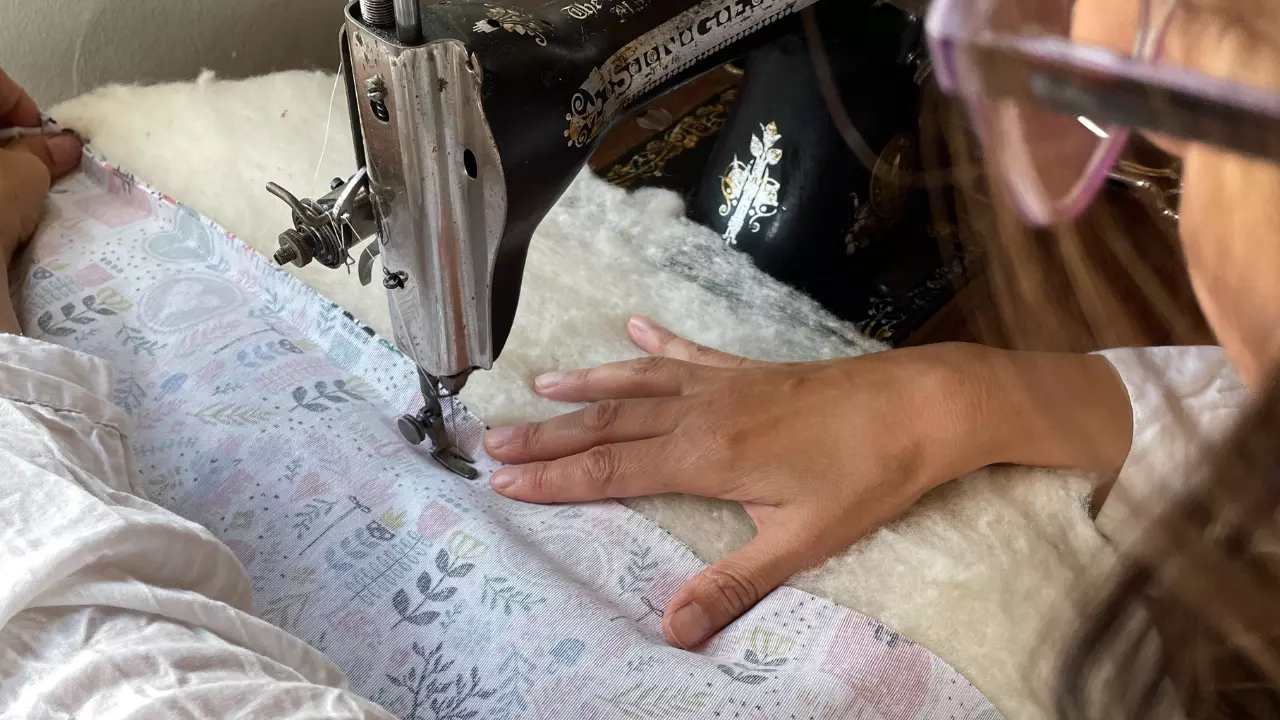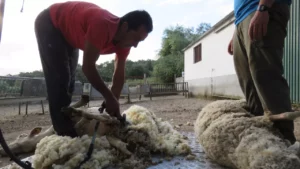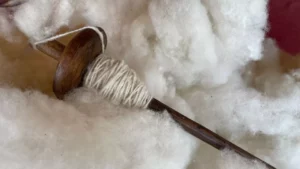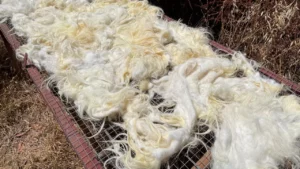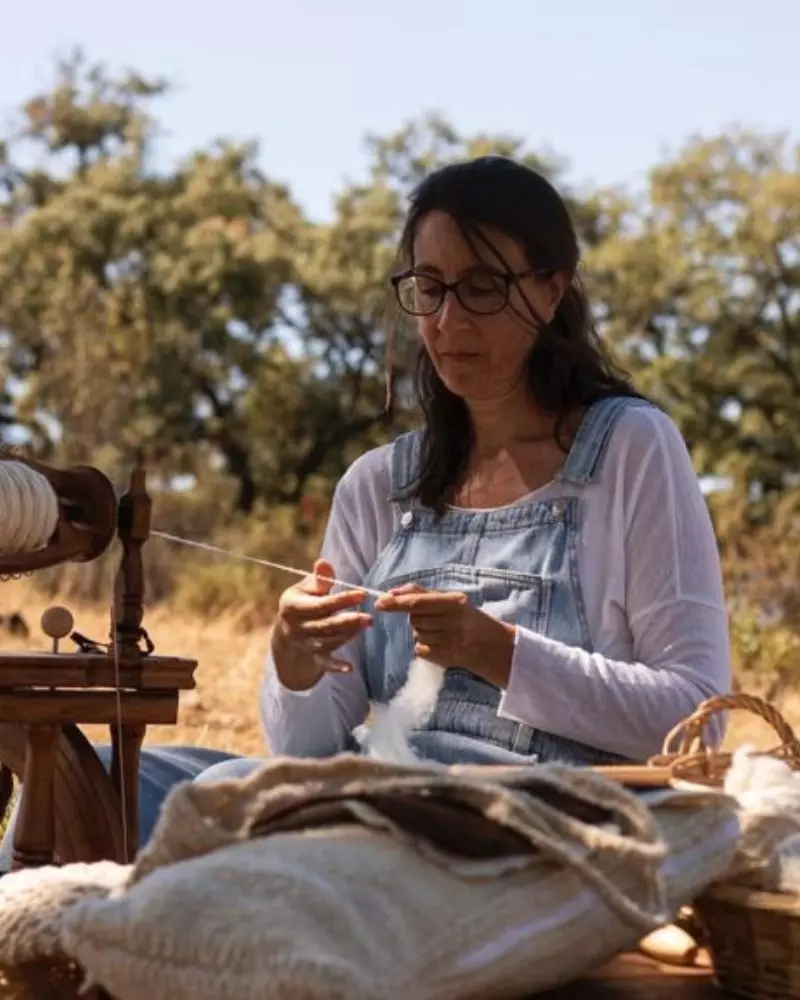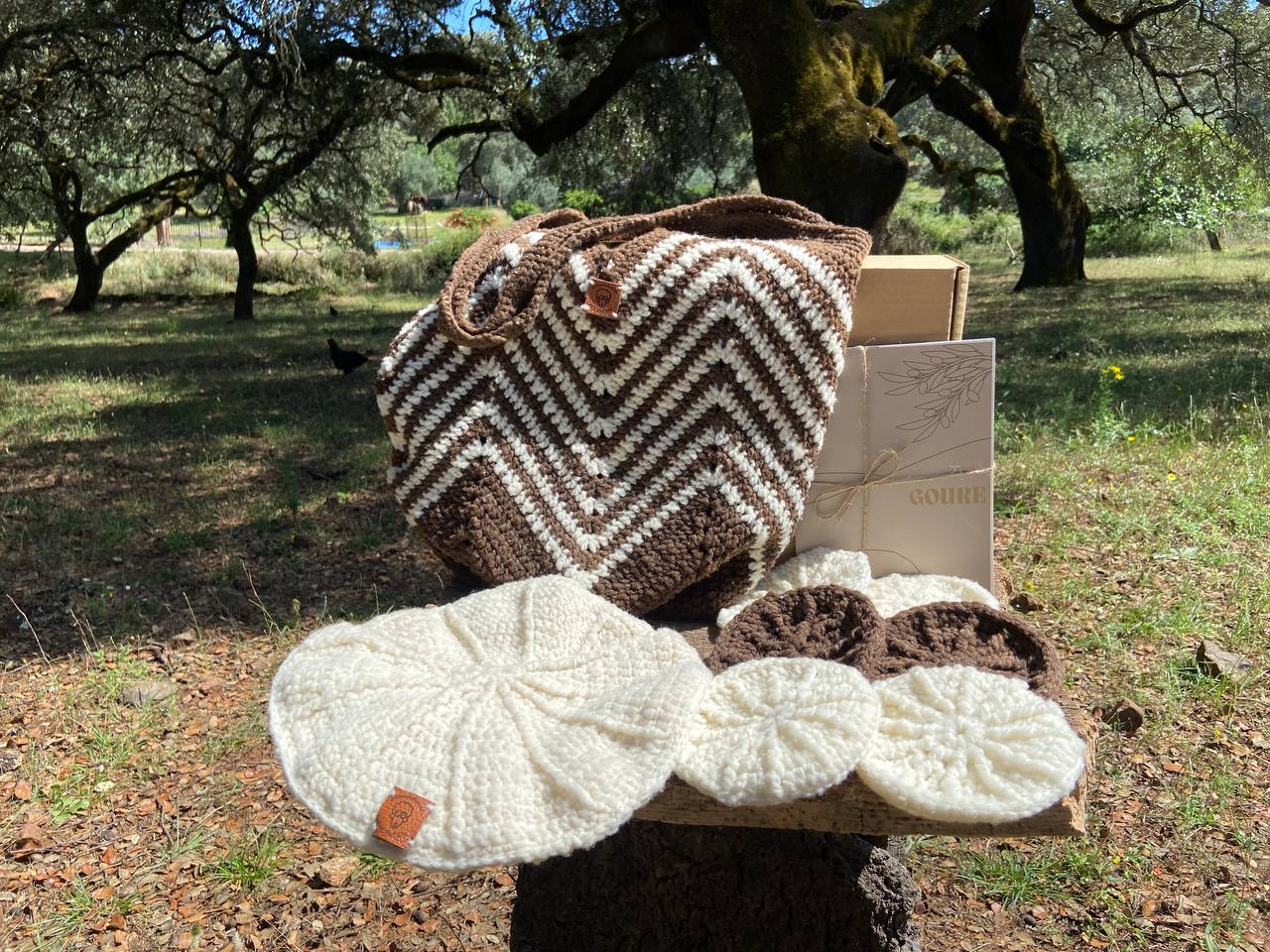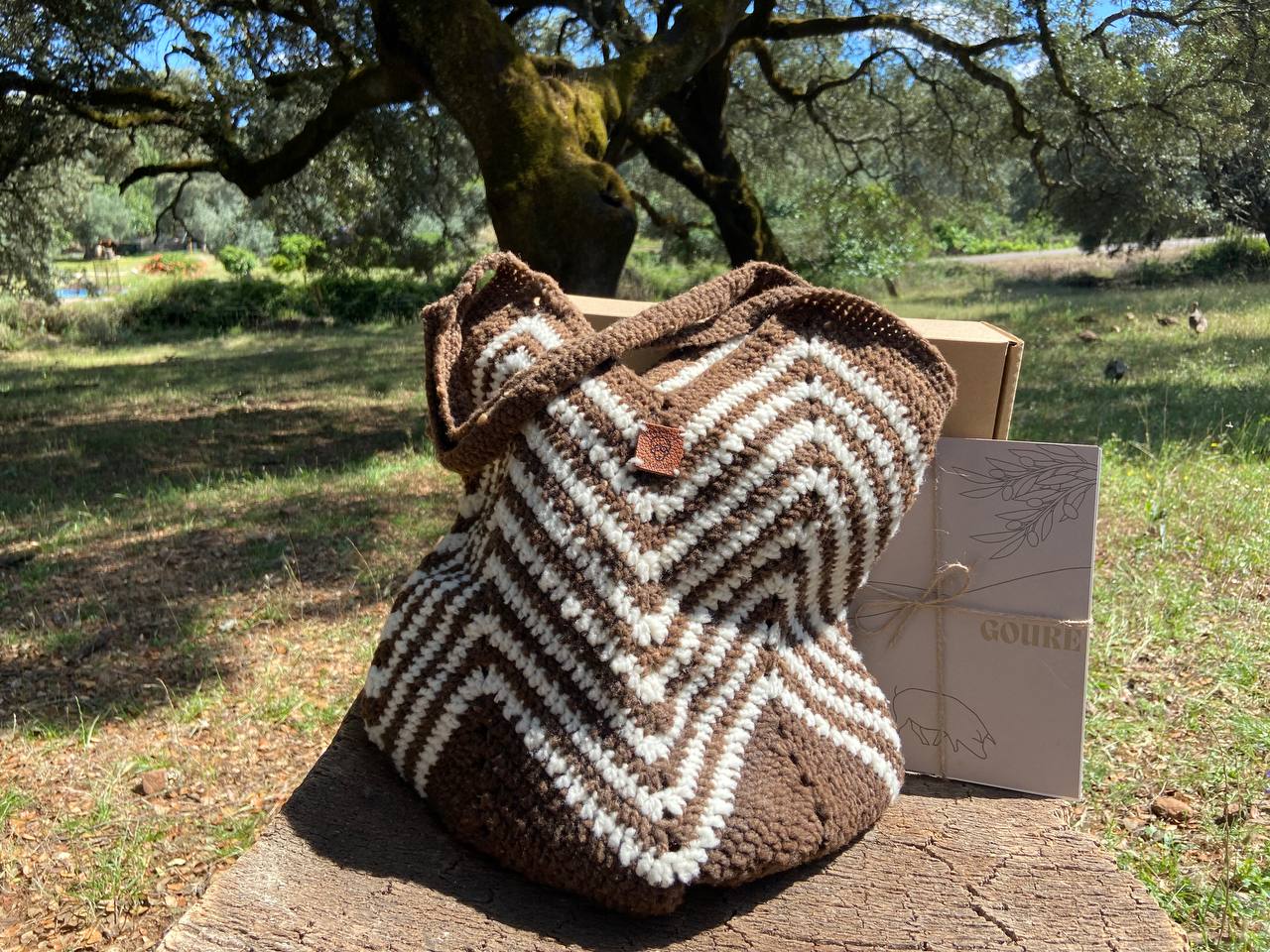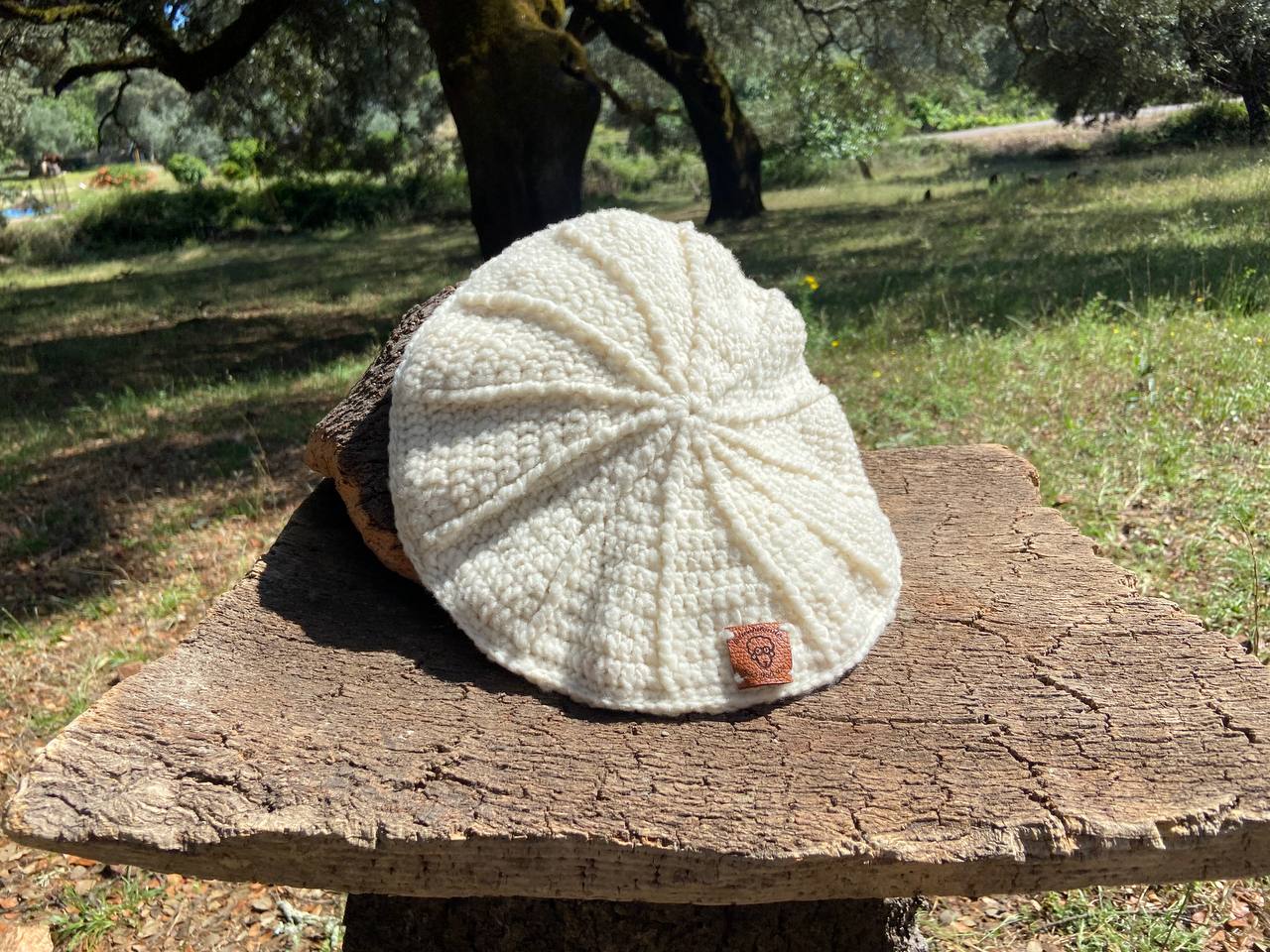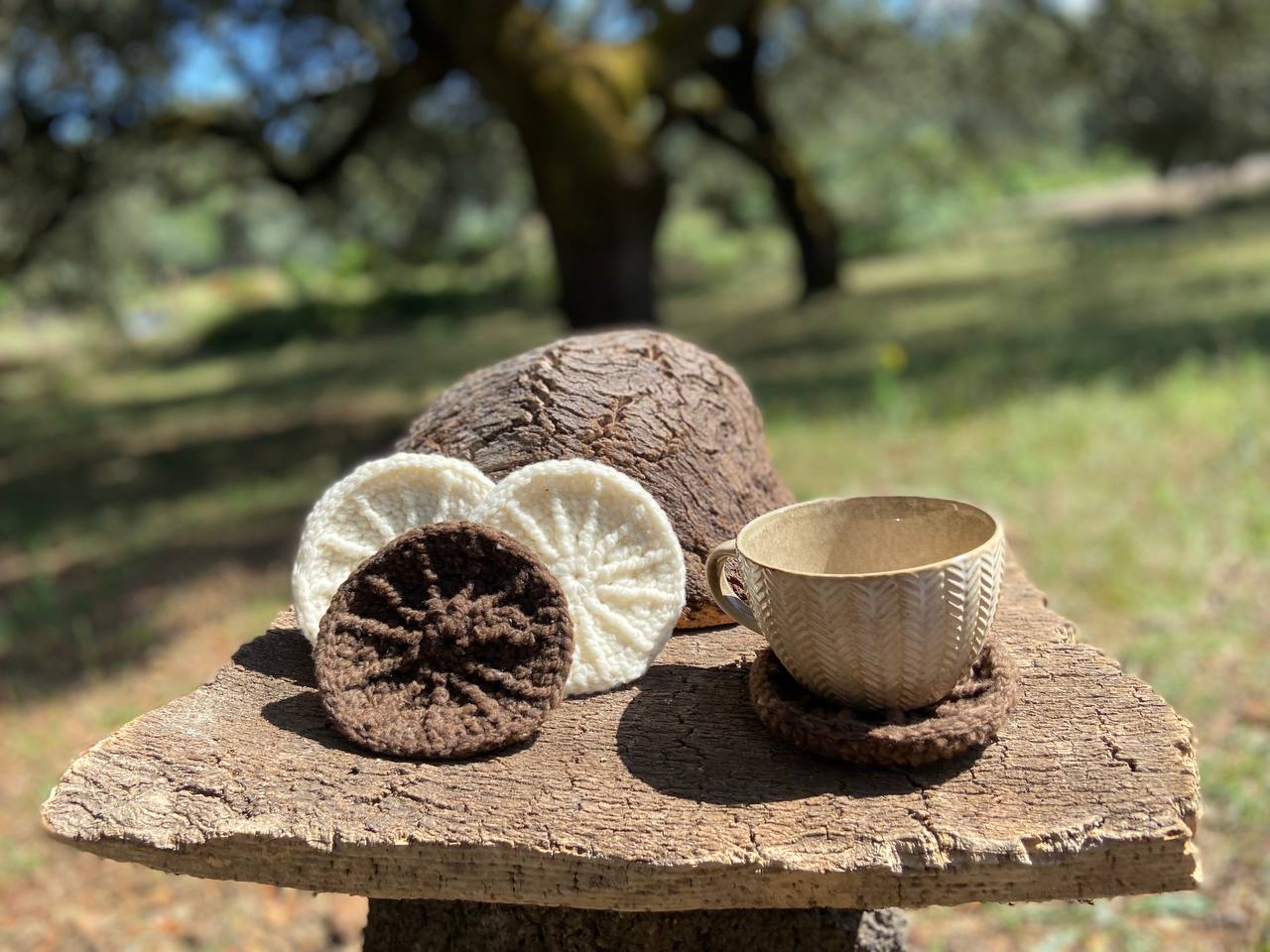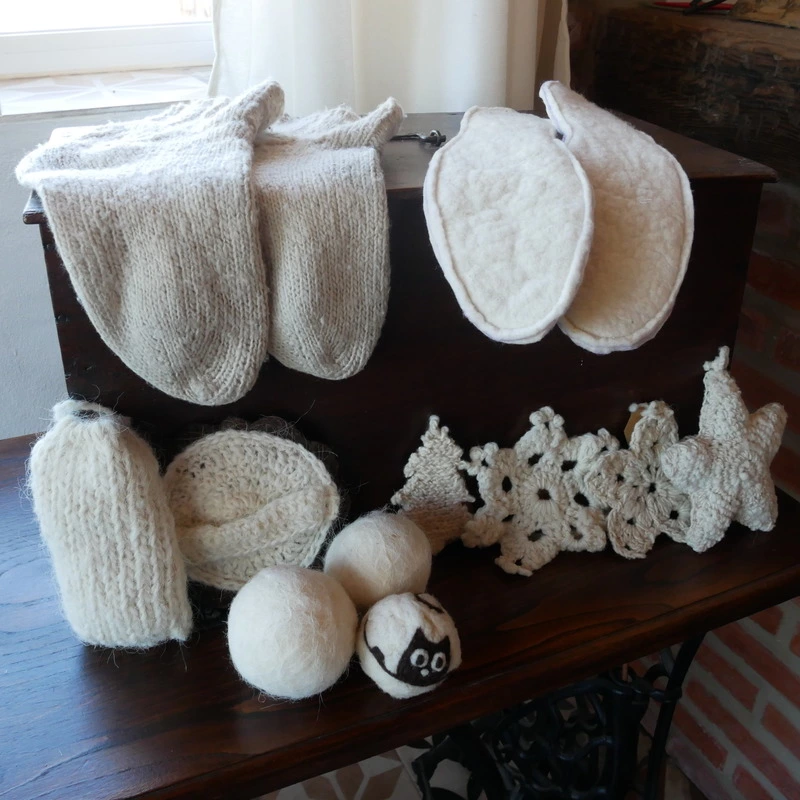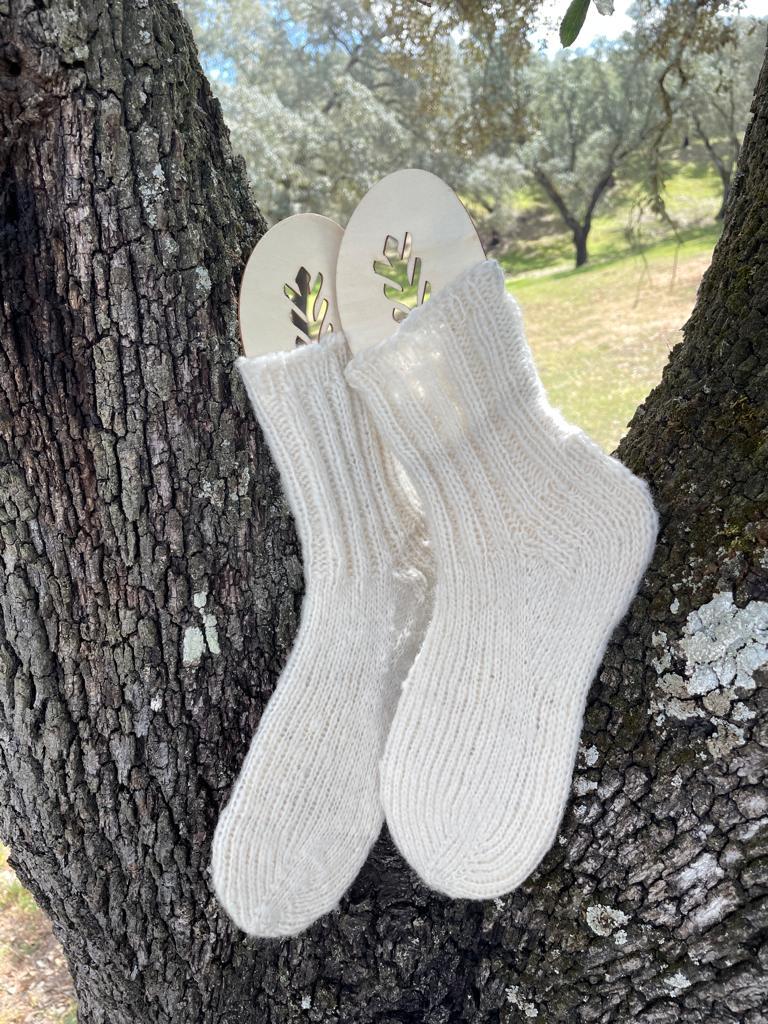Beatriz Castilla Delgado
I always liked working with wool. My mother had a wool shop and it was she who taught me from an early age. But I wanted to go further, to make products from the wool of my own sheep. As my father had sheep at that time, I asked him, one of the times he sheared, to please keep some for me. When I saw all that was involved (washing, carding, sorting, isolating, spinning, etc.) I abandoned the project, so much work for one person alone was impossible to take on. However, the idea did not leave my head and years later I came back to try again. I thought that if I learned how to use the spinning wheel it would make the spinning process easier and shorten the processing time. I was fortunate to participate in a course that took place in Hervás (Cáceres), organised by Dehesalana, close to where I live, where they not only taught me how to spin with the spinning wheel but also with the spindle and how to dye. I returned home with renewed energy and a great enthusiasm to start.
My family at first thought I was crazy, they told me that working with wool was not profitable, that it was a lot of time, a lot of effort and that I was not going to make any economic profit. They were right, but the fact of being able to work with wool, to do what I love, is to gain happiness and for me happiness is more valuable than money. I know that you can’t eat from happiness, I have another job and I have to combine it. As I can’t afford to move to the farm because the project is not yet viable, I work in the village of Cortegana and thanks to that I can afford to spend the summer on the farm doing what I really like, working with wool.
I intend to do my best so that people really get to know what this traditional craft is all about. I want them to value the product and what we are doing for the regeneration of the territory. For me it is so beautiful and I like doing what I do so much that it is a gift. I would like to specialise, improve my spinning technique and if I can, even learn how to use a loom, although that’s a big step. That is one of my greatest dreams.
My husband Isidro is one of my biggest supporters. He is always looking for new methods and systems to make the different wool processes more comfortable for me. He built the wool dryer and a large part of the workroom that I have today.
My daughter Candela is my biggest fan. She proudly tells all her friends what her mother is doing with wool and her friends share it with me every time they see something related to wool on social networks. They are such sweethearts.
Of course, I can’t forget my friends, Sete and Natalia, who are amazing and wonderful because if they hadn’t been there at that crucial moment in my life when I decided to take the plunge and start this project, probably I wouldn’t be doing this right now.
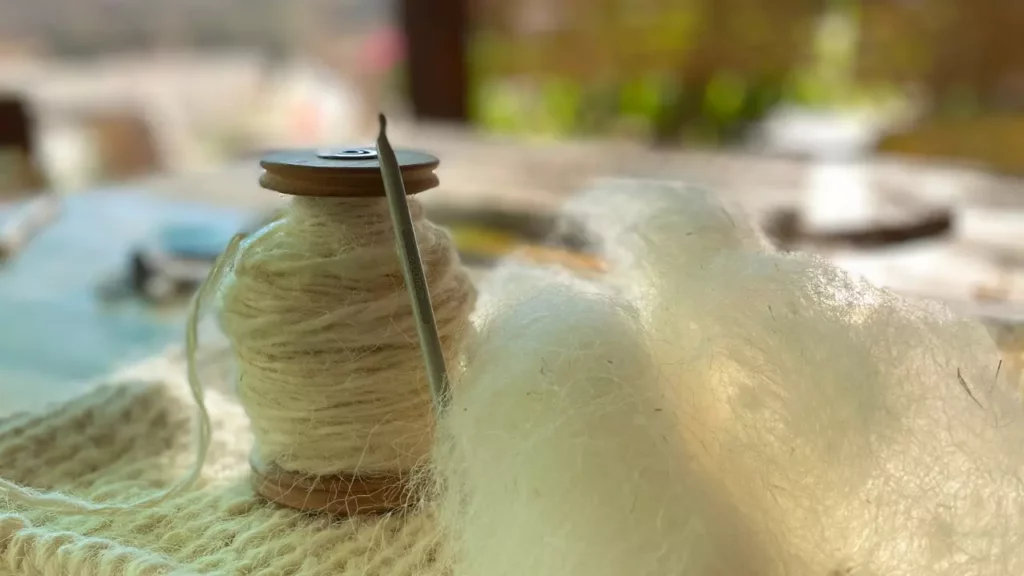
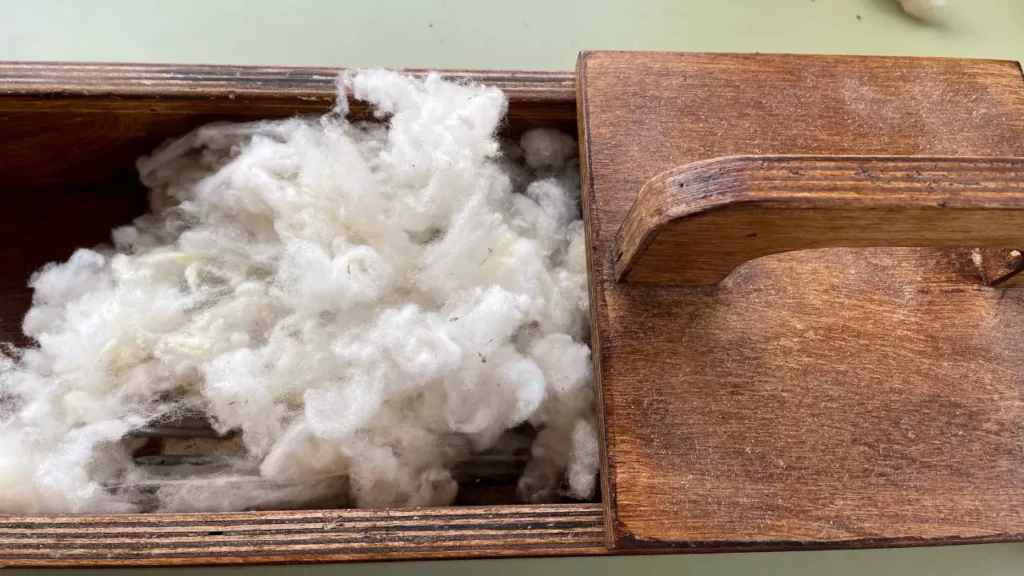
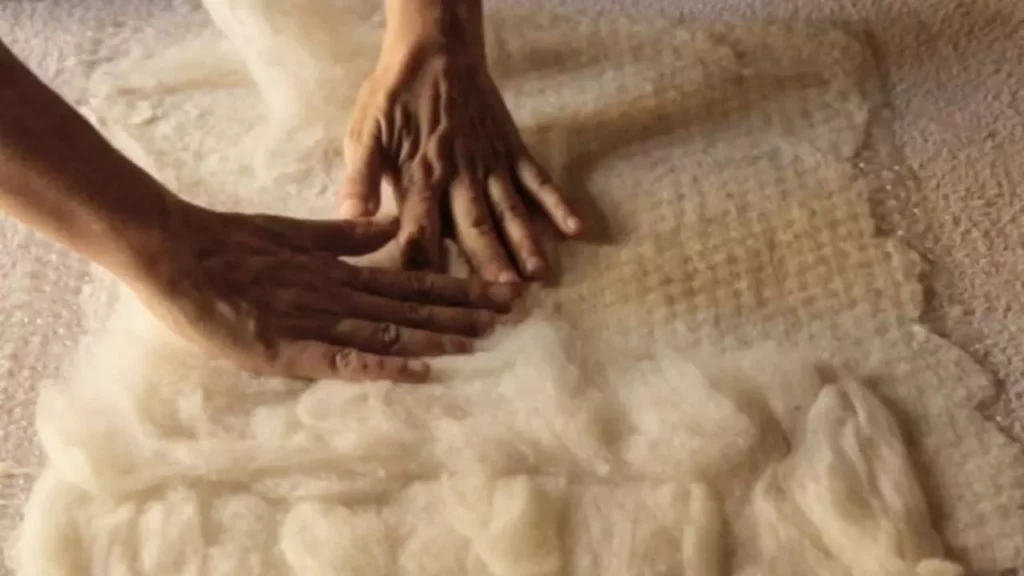
Project Beahilando
My mother was the one who taught me to knit the wheel and who transmitted to me her love for pure natural fibres such as wool. My father was the one who planted in my mind the love for the farm, nature and animals, among them sheep. As I often say, those two strands came together and became the ball of yarn that I am and that is Beahilando project.
Beahilando is a family project whose aim is to produce wool products obtained from our own flock of sheep, working in an artisan way and being present at all stages from the shearing of the wool until the product is made.
A fundamental pillar for the project’s origin was meeting Sete and Natalia, two rural women with whom we share many things in common, among them, a firm intention to value the resources of the territory, as is the case of sheep’s wool, and the importance of the role of rural women in them.For years, almost all the sheep wool sheared in the Sierra de Huelva has been exported unprocessed to China. The farmer hardly obtains any economic benefit for his sheep’s wool, as the selling price is similar to the cost paid to the person who shears it, even lower in some years. With the pandemic and the increase in transport costs, China stopped importing all this sheep’s wool and it ended up in the rubbish bins of the villages or was simply burnt. It seemed unbelievable to us that something that was once so valuable could be wasted in such a way. Through our association “Lana merimorena” we aim to make wool visible and to enhance the value of this traditional practice.
Las Peñas
The name of our farm Las Peñas comes from the Paraje Natural Peñas de Aroche where it is located. We have 82 hectares of which 50 hectares are oaks and cork oaks and the rest is made up of a rich and varied undergrowth and small hills with rocks and granite balls (peñas) that give the natural park its name. We share our skies with a large colony of black vultures, as the characteristics of the area are ideal for their nesting.
Although my house is only 20 km away from the finca, the reality is that it takes about an hour to get there as the road runs between mountain dirt tracks.
We are located in the western part of the Sierra de Huelva region, in the northern part of the province, close to Sierra Morena, one of the most depopulated areas of Spain. With our project we contribute to the regeneration of the territory and the use of our resources such as sheep’s wool.
On the farm we have a small farmhouse that was built in the 19th century, which conserved a wood-burning cooker and a couple of rooms that were used for the workers on the farm. Over the years we have gradually restored it and converted it into my workroom where I process sheep’s wool and into a second home where we spend our holidays and weekends in family. Inside the workroom we have a store room where the sheared wool is stored and a room for sorting and spinning.
We currently have a herd of about 28 cows on the farm. My husband Isidro and I look after them and feed them. Soon a small herd of Merino and Churras Lebrijanas sheep will join the family. I will be informing you very soon 🙂

